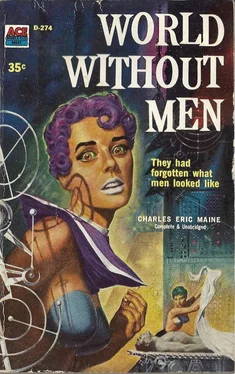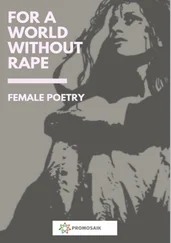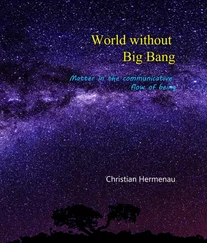Charles Maine - World Without Men
Здесь есть возможность читать онлайн «Charles Maine - World Without Men» весь текст электронной книги совершенно бесплатно (целиком полную версию без сокращений). В некоторых случаях можно слушать аудио, скачать через торрент в формате fb2 и присутствует краткое содержание. Город: New York, Год выпуска: 2013, Издательство: Ace Books, Жанр: Фантастика и фэнтези, на английском языке. Описание произведения, (предисловие) а так же отзывы посетителей доступны на портале библиотеки ЛибКат.
- Название:World Without Men
- Автор:
- Издательство:Ace Books
- Жанр:
- Год:2013
- Город:New York
- ISBN:нет данных
- Рейтинг книги:4 / 5. Голосов: 1
-
Избранное:Добавить в избранное
- Отзывы:
-
Ваша оценка:
- 80
- 1
- 2
- 3
- 4
- 5
World Without Men: краткое содержание, описание и аннотация
Предлагаем к чтению аннотацию, описание, краткое содержание или предисловие (зависит от того, что написал сам автор книги «World Without Men»). Если вы не нашли необходимую информацию о книге — напишите в комментариях, мы постараемся отыскать её.
World Without Men — читать онлайн бесплатно полную книгу (весь текст) целиком
Ниже представлен текст книги, разбитый по страницам. Система сохранения места последней прочитанной страницы, позволяет с удобством читать онлайн бесплатно книгу «World Without Men», без необходимости каждый раз заново искать на чём Вы остановились. Поставьте закладку, и сможете в любой момент перейти на страницу, на которой закончили чтение.
Интервал:
Закладка:
She paused and referred to a file of papers.
“In a moment I shall give you a detailed description of the woman Koralin, and an indication of her probable movements, following which an immediate total security check is to be placed on all airports, seaports, road and rail transport stations, and provisioning centres. All vehicles entering and leaving all towns and cities are to be stopped and searched. All pedestrians carrying parcels or bundles or carriers of any kind are to be halted and searched. This is an emergency operation.”
A pause, then: “Here is a detailed description of the woman Koralin…”
“It is a male child,” said Koralin, unable to conceal a nuance of pride in her voice. “Test four-six-five is the official designation. The micro-cytology operation was performed by a woman named Cordelia. When the embryo started to grow, we took over.”
Aubretia, incredulous and vaguely horrified, was inspecting the pale still body of the baby from a distance, her fingers touching her cheek in abject uncertainty.
“Rut… but it’s dead!”
“No. Merely unconscious. I injected paracain. The child will sleep for about thirty hours.”
“Then what…?”
“The Senior Mistress of Applied Cytology this morning gave the order for the destruction of this child. You realize what that would have meant?”
“No…”
“It would have meant the end of all hope for the perverted and neurotic society in which we live. It would have been the final act of despotism, establishing for all time the robot state: female automatons working to the orders of electronic computers. This baby," — Koralin touch the infant gently — “could be the saviour of womankind.”
“Saviour…?”
“I realize I’m talking about things you may not fully understand, but believe me, Aubretia, what I am saying to you is the truth. The last man died some five thousand years ago. Women would have died too, if scientists had not learned how to perpetuate the human species by artificial means. But a monosexual society must of necessity be a perverted society — abnormal. It conforms to distorted patterns of behaviour, and for that reason is all the more susceptible to regimentation. You have heard of the parthenogentic adaptation syndrome. It is a concise definition of our way of life. It sounds like a disease, and that’s exactly what it is. We are diseased, all of us, and we shall go on being diseased, generation after generation, until the end of time. Unless…
“Unless,” Aubretia repeated hollowly, not comprehending, but sensing the ominous implications of the other woman’s argument.
“Unless we turn the clock back five thousand years. Unless we reintroduce a male sex and revert to a normal way of living.”
“But, would it be normal?”
Koralin smiled grimly. “Study ancient history. Consider nature as a whole. Think of life and living. Then look around you at the world we know: laboratories, experiments in human embryology, fertility centres, induced parthenogenesis, the syndrome, cultivated Lesbianism. Don’t you feel that something is missing?”
“No… but sometimes, yes. I have a feeling, but I can’t define it.”
“Would you want the world to go on in this way for the next ten thousand years?”
Aubretia spread her hands uncertainly. “I don’t think I shall have any feelings about it a hundred years from now.”
“That is the voice of deep hypnosis, Aubretia. There was a time when you were concerned about the state of the world today, sufficiently concerned to risk your future, even your life, by committing an act of major subversion.”
“I don’t remember.”
“But you will. I’ll help you to remember.”
Aubretia walked slowly across the room to the window and looked out into the night with its twinkling firmament of coloured neons. “All I know is you have brought here a male child which should have been destroyed. Why, Koralin? Tell me why?”
“Because a point in time had been reached when human affairs could change, once only, and for the last time. I was assigned to destroy the child Had I done so the future would have become static, for there will never be another male child. This is the first, and the last. I injected paracain and stole the child, and came straight here.”
“But you can’t get away with it, Koralin. Once they find out there is no comer of the world where you will be safe. They will seek you out, and they will take the child and destroy it anyway, and perhaps you too. What will you have gained?”
“About seven thousand years ago,” Koralin said quietly, after a pause, “there was another parthenogentic male, a miracle child that was referred to as the saviour of mankind. The State set out systematically to destroy it; to destroy all new born males. It was the same kind of security, ruthlessly applied, by an authority which feared the child’s power to undermine authority. But they failed. The child survived…
“Well…?”
“History can repeat itself. Here we have another parthenogenetic male with the power to change the nature of society, to undermine the authority of the State, to bring about a new way of life and give new hope. For thousands of years the world has awaited a second Messiah. And now he has arrived, Aubretia, and authority will attempt to destroy him before he destroys it.”
“I don’t know what you’re talking about, Koralin; I don’t even know what the word Messiah means. But you reright about authority. Security police will be on patrol now, everywhere. They’ll be interrogating thousands, blocking all roads, checking on provisioning centres, searching apartments. Whatever may have happened seven thousand years ago, it can’t happen now. The child is as good as dead.”
Koralin shook her head firmly. “Never. He is only a tiny creature, easy to hide and easy to nourish. I can’t do it alone, Aubretia, but a group of us- you and me, then others we could trust. Together we could conceal him and keep him alive to grow and mature.”
“How long would that take?”
“Eighteen, twenty years. Perhaps much less.”
Aubretia sighed wearily. “You know it’s impossible Twenty is an eternity, and in a block of apartments like this… There is a woman who lives below me: I feel sure she is a security agent.”
“We should have to escape. Move out of the city, perhaps to some other part of the world. In a small community, beyond the reach of security…”
“There is no such place.”
“But there is, Aubretia; there must be. Central Africa, or Antarctica…”
“How could you raise a child under such conditions?”
Koralin’s lips were pressed into a stubborn line. “By constant care and attention. A dozen of us would do it, and the movement would spread and grow strong. As the child matured there would be thousands of us, and when he was old enough to effect fertilization, then there would be more male children, and they too would grow and mature…
“You’re dreaming, Koralin. You could never take the child more than half a dozen paces outside this building, and you know it.”
“There are ways and means. I should have to stay here for a few days. There would be time to think and make plans, perhaps time to contact other women I know who would be sympathetic.”
Aubretia crossed to the other woman and regarded her solemnly “You’re a courageous woman, Koralin, but what you say is impossible. You are thinking in terms of starting some kind of colony in opposition to the world, and in defiance of the world brain.” A coldly considered pause. “It couldn’t work.”
“It could, if you had faith.”
“Faith in what? I’m a borderline case, I know. You tell me I was once treated for subversion. But I am what I am, and my faith stops short at the Department of Mortic Revenue. If I really thought you had the slightest chance I might support you, Koralin, but, frankly…” She shook her head disconsolately.
Читать дальшеИнтервал:
Закладка:
Похожие книги на «World Without Men»
Представляем Вашему вниманию похожие книги на «World Without Men» списком для выбора. Мы отобрали схожую по названию и смыслу литературу в надежде предоставить читателям больше вариантов отыскать новые, интересные, ещё непрочитанные произведения.
Обсуждение, отзывы о книге «World Without Men» и просто собственные мнения читателей. Оставьте ваши комментарии, напишите, что Вы думаете о произведении, его смысле или главных героях. Укажите что конкретно понравилось, а что нет, и почему Вы так считаете.












